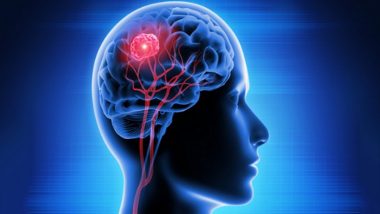Washington, May 15: According to a study, new insights on the spread of harmful proteins that accumulate in the brains of patients with Alzheimer's disease may hold the key to halting the illness's progression. Researchers have discovered that synapses, which send essential signals through the brain, are also transporting toxic proteins known as tau around the brain. COVID-19 Infection Accelerates Dementia Progression in Patients Already Suffering From Neurodegenerative Condition: Study.
Large clumps of the protein tau - called tangles - form in brain cells and are one of the defining features of Alzheimer's disease. As these tangles spread through the brain during the disease there is a decline in brain function. Led by the University of Edinburgh, the study focused on synapses, connections which allow the flow of chemical and electrical messages between brain cells and are vital to healthy brain function. Alzheimer's disease attacks synapses and their loss strongly predicts reduced memory and thinking abilities. What Is Huntington’s Disease? Everything You Need To Know About This Inherited Brain Disorder.
In the study, scientists examined more than one million synapses from 42 people using powerful microscopy techniques to visualise proteins within individual synapses. The team discovered that small clumps of the protein tau - known as tau oligomers - are found within the synapses of people who died of Alzheimer's disease.
Tangles of tau oligomers were seen inside both ends of the synapse - from the brain cell sending signals and the brain cell receiving signals. In a mouse model of the disease, the oligomers jumped from one side of the synapse to the other, spreading the toxic tau through the brain. Lowering oligomeric tau at synapses may be a promising strategy to stop disease progression in future, experts say.
Alzheimer's disease is the most common form of dementia, with currently around 900,000 people with the condition in the UK. This figure is projected to rise to nearly 1.6 million in 2040. It can cause severe memory loss and there is currently no cure.
(This is an unedited and auto-generated story from Syndicated News feed, LatestLY Staff may not have modified or edited the content body)













 Quickly
Quickly



















